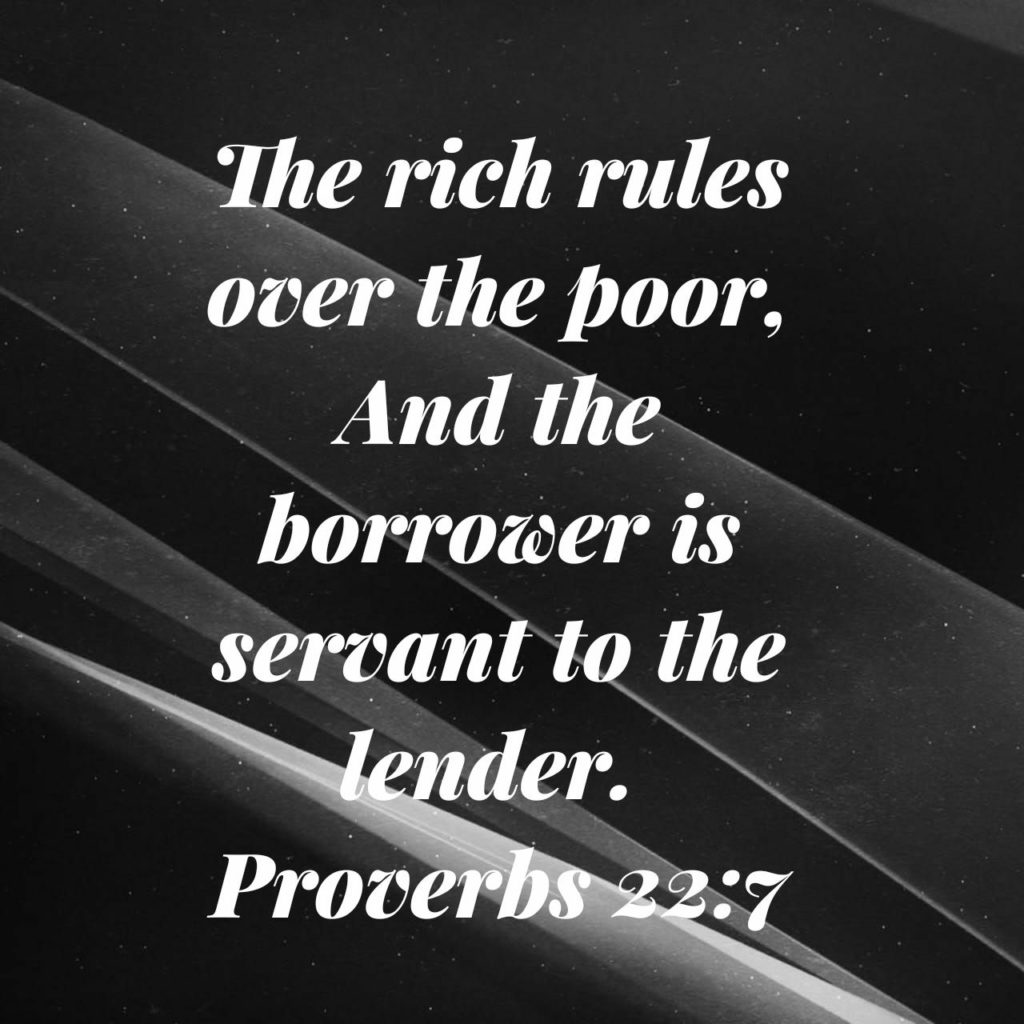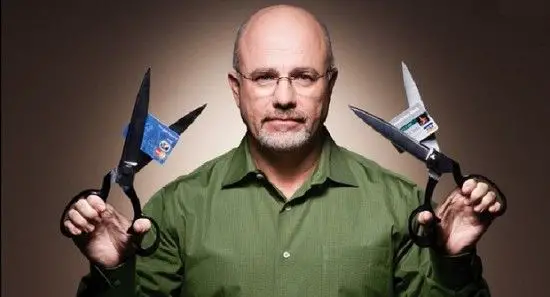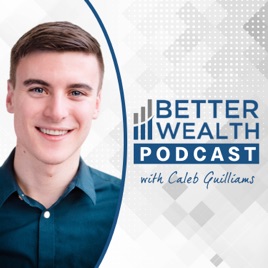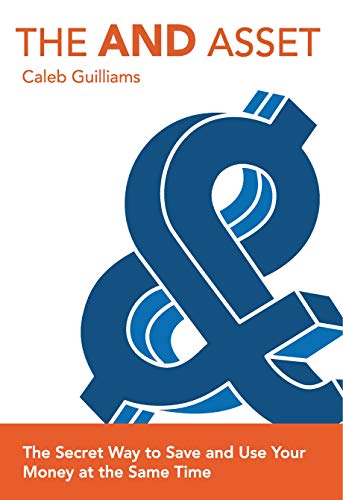Welcome to Why I Don’t Completely Agree With Dave Ramsey!
Introduction
Today’s post features two of my favorite personal finance experts and mentors: one very popular and well known; the other, my brother-from-another-mother, just entered the space a few years ago.
Both experts geniunely care for the people they financially advise, yet interestingly enough, hold a polar opposite view on at least one key aspect of personal finance.
In this article, we’ll discover how we can find middle ground, even when two people have diametrically opposed views.
Ahem.
(This doesn’t just go for finances either. It goes for a lot of things out there…. Yes, you, political Twitter activists.)

Mentor & Expert #1: Dave Ramsey
YES!! Dave Ramsey!!!

Yeah, yeah, yeah. I admit, I’m a huge Dave Ramsey fan. I cut my teeth on Dave’s finacial expertise. My parents have used his principals for years now and taught my siblings and me the same principals with chores and managing our own finances.
Dave Ramsey’s Backstory
In his 20’s, Dave started on his personal finance journey… recklessly. He unashamedly admits he made some super dumb financial decisions, and his website, radio show, and company each strive to help as many people as possible to avoid the bad financial decisions he made in his early days.
The Ramsey family has a strong work ethic and came from a small Tennessee town. Dave started a lawn mowing business at the age of 12, after asking his dad for money to buy an Icee – to which his dad replied, “You’re old enough to start earning money yourself.” Around the age of 22 or 23, he started getting into real estate. By the age of 26, he was a millionaire with 4 million dollars in real estate, 3 million dollars in loans, and a net worth of about 1 million (he was making about $20,000 per month in taxable income).
Suddenly, out of nowhere, a new bank bought out one of the banks where Dave held a loan. The bankers looked at this over one million dollars loaned out to a 26-year-old kid and immediately recalled it.
Dave was flipping houses, working with 90-day-notes. He had only 90 days to pay over a million dollars in debt – impossible! He couldn’t sell his real estate fast enough.
60 days later, a second bank recalled the one million dollars Dave owed them. Fighting to keep afloat for over 2.5 years, one day the Sheriff came to take his and his wife’s furniture. Dejectedly, they filed bankruptcy.
Crazily enough, they had managed to pay off $2.6 million dollars worth of loans in 2.5 years (When they filed bankruptcy they had only $300k left in loans)!
Dave Ramsey’s Mission
Knowing Dave’s backstory, it is easy to see how his finance philosphy, The Seven Baby Steps, evolved.
As a result, Dave now holds certain beliefs about personal finances:
- Credit cards are stupid.
- Car loans are even more stupid.
- Student loans are basically a disease.
- Loans or debt of any kind is stupid.
- Term insurance is far better than any other, and whole life insurance “is the payday lender of the middle class.”
- Cash is king.
- Mutual funds are the best place to invest your money.
- Budgeting is mandatory.
- The market averages 12%.
- 15-year mortgages will “pass,” but pay them off quickly.
Ramsey Solutions’ mission statement is:
“Ramsey Solutions provides biblically based, common-sense education and empowerment that give HOPE to everyone in every walk of life.”
About Dave Ramsey
The Pros of Finance the Ramsey Way
Dave Ramsey’s experiences taught him two big things.
First, debt is bad. All debt. It doesn’t matter what kind of debt, it’s all bad. “The borrower is slave to the lender.”

Secondly, the right way to build wealth is in a slow and steady, cash-only, disciplined way. Don’t rush, don’t leverage, don’t use debt, don’t “buy crap you don’t need to impress people you’ll never meet.”
It works! Using these financial principles, thousands of people have pulled themselves out of dire financial situations, from hundreds of thousands of dollars worth of debt swallowing them alive to becoming debt-free and well on their way to financial independence.
Dave is an expert at helping people in crisis situations. The grandpa or father a lot of people never had, he tells them to their faces when they’re being stupid. He won’t beat around the bush or take excuses. He’s grounded in hard work, discipline, and no whining.
- Under mountains of debt? Dave is your guy.
- Spending like congress with no financial self-control? Dave is your guy.
- Your parents never taught you about money, and you’re lost? Dave is your guy.
- Overwhelmed or skeptical about being scammed or ripped off by all the bad advice out there and just want something that works? Dave is your guy.
Fun Fact:
When you purchase anything from Dave Ramsey (whether on his website or in-person at his events) he won’t accept credit cards! Yeah! You literally can’t buy anything from Dave Ramsey with a credit card.
Now that’s being a man of your word!

The Cons of Finance the Ramsey Way
No system is perfect, so there are a few cons to this system. Sure, Dave’s advice works and has countless testimonies to back that up, but it is a little too simplistic.
Dave often doesn’t dive into deeper wealth-building topics, so if you already have a strong grasp on your finances and are looking for the next level, Dave likely won’t have the information you need.
The stuff he teaches works, but it doesn’t mean it’s the best way to do things. Sure, investing in mutual funds for decades until retirement will work, but I would argue it’s not the best way to invest your money.
Dave seem to take the fees for granted when talking about mutual funds. Secondly, the vast majority of mutual funds underperfom the market. Very rarely will a mutual fund regularly outperform the stock market – very, very rarely.
Dave might not teach the best way to handle the different aspects of your personal finances, but you are faaaar better off following Dave’s baby steps than you are not following them. Check out his book: The Total Money Makeover: Classic Edition: A Proven Plan for Financial Fitness, and decide for yourself!
Now, let me introduce the second money expert!
Mentor & Expert #2: Caleb Gulliams
Even though they hold some polar opposite views on money, Caleb has a lot of similarities to Dave.
A 23-year-old entrepreneur and business owner, Caleb started the company Better Wealth to spread the word about a little-known financial strategy the wealthy have used to build and protect vast amounts of wealth.
Caleb reaches people through his podcast, his book The And Asset, and offers a crash course called And Asset University (which I am a “graduate” of myself and highly recommend).
Caleb’s Backstory
Similar to Ramsey, Caleb grew up in a small town in Winsconsin. A homeschooler (like me), one of his first businesses was Caleb’s Citchen (a play on the word kitchen) where he would sell loaves of bread to other homeschool families. At 15, he started his first job gutting chickens at a small factory (His record was 52 seconds, from start to finish, gutting a chicken – very impressive. As a fellow former-chicken-gutter, I’m honestly surpised he didn’t cut himself trying that! 😂).
At the age of 17, he became a teller at a local bank and loved it. Excited to get more involved in finance, his boss promoted him to assistant to the bank’s chief investment advisor.
All throughout Caleb’s life, mentors have poured into him, and one of those mentors, JG Rosholt, CEO of the bank, asked him if he would take over the bank’s investment department at 19-years-old.
Taken from Caleb’s Bio:
“Caleb read books, asked questions, called people, and travelled extensively. He sought out and positioned himself to study under the best mentors he could find regarding finance, taxes, insurance and investments. He travelled the country for over two years to ensure he would be able to provide the best strategies for his clients.”
After diving even deeper into the banking world, at the age of 22, Caleb started his company, Better Wealth Solutions.
Caleb Gulliam’s Mission Statement
Framed on the wall in his office: “Help people see and reach their highest potential.”
Caleb believes we are our number one asset. His mission is to empower people to take control of their finances, so they are freed to pursue their dreams and their “Why” in life.
Caleb also has some strong beliefs about personal finance (I wouldn’t even call them just beliefs, they’re facts too… though Dave would disagree with some).
Caleb’s Beliefs
- A dollar spent (or lost) today doesn’t just lose you that dollar but also what that dollar could have earned you in the future. Think of each dollar as a golden goose. When you spend a dollar (or lose it), you kill a golden goose.
- The wealth equation is: E = mc^2 which stands for maximum Efficiency = money × (uninterrupted Compounding × unhindered Control).
- Credit cards aren’t “spawn of hell,” and he’s used them to successfully earn free travel. [I will note here that I am also a fan of credit cards when used by a disciplined and mature person (obviously, not many people are, because credit card companies are making loads of money)].
- Leverage is a powerful and incredible wealth-building tool when used maturely and responibly.
- Acting like a banker is the most effecient way to buy a house or car (using the same principles they would, as explained in his book, The And Asset).
- Tax-deferred accounts aren’t all they’re cracked up to be, as taxes will only rise in the future (just look at our economy).
- The ideal financial vehicle will possess 16 key characteristics (here’s a few listed below, you can check out the full list in his book):
- Safety
- Easy access
- Competitive growth
- Leveragability
- Guarantees
- No %-based fees
- Free of regulation
- No contribution limits
- Creditor protection
- Deductible contributions
- Tax-free growth
- Tax-free use
- The ideal financial vehicle is . . . . drumroll please . . . . a whole life account with a “mutal-owned life insurance company, using a specifically designed, dividend-paying contract.”
The Pros of Finance the Better Wealth Way
Caleb offers a much higher level of personal finances than Dave does. A lot of the strategies he teaches I had never heard of, so it took a second for me to wrap my head around.
Caleb may be young, but he isn’t naive or teaching this for money. He offers one of the most robust and high-level personal finance plans I’ve ever found and is sincere in his mission to “Help people see and reach their highest potential.”
Caleb shares, in his book and videos, specific tools and strategies the wealthy (aka multi-millionaires and billionaires) have used to build and protect their own personal wealth.
If you already have your finances in tip-top shape (actually, even if you don’t, Caleb and his team can still absolutely help you), implenting the Better Wealth strategy will revolutionize your life.
The Cons of Finance the Better Wealth Way
While the Better Wealth system and The And Asset offer a much higher level take on personal finances, it still requires discipline. If you’re drowning in debt or spending like congress, then No, you’re not ready to use this yet.
Take, for example, Caleb’s and my common view on credit cards.
Dave Ramsey hates credit cards with a passion and for good reason too. Countless people screw up their lives (excuse my strong language) when they try to use them. Not entirely their fault, neither school nor home taught the vast majority of them anything about sound personal finances.
In the majority of cases, I agree with Dave! I agree that most people should not use credit cards. Still, I cannot deny there are people who use credit cards successfully to score thousands of dollars worth of travel and cash over several years, without burying themselves in debt.
There’s a proper way to use a credit card. You use it like you would a debit card, and never, ever, spend more than you have in your bank account – EVER. If you use a credit card, you should ALWAYS pay off the balance in full every month. ALWAYS.
Do most people do that? Nope.
So then, most people wake up months later with thousands of dollars in debt compounding at 26% (compounding in the completely wrong direction that is).
If used properly, credit cards can become a very powerful tool.
Summary of the Pros & Cons of Each System
The pros of Dave’s system: 1. It’s simple, and 2. It just works. It works, and it works when you’re in a crisis situation and need solutions fast.
The cons are that long-term, Dave’s system is too simplistic and lacks higher-end financial strategies.
The pros of Caleb’s system: 1. It is the most efficient personal finance system out there (at least that I’ve ever seen), and 2. It includes high-level strategy for long-term investments and multi-generational legacy wealth. By compounding your wealth in the most effecient manner, this system vastly cuts down the amount of wealth transfer loss (taxes, fees, expenses) your money experiences.
The cons of Caleb’s system: 1. It requires a lot of discipline and must not be abused, and minorly, 2. It is not tax-deferred. If your financial boat is sinking, and you have spending problems, you probably shouldn’t dive into this right away.
My Thoughts
Here are my personal thoughts on both Caleb’s and Dave’s differing financial advice, and how I’m applying it to my own life.
I’m grateful that I started learning about finances from Dave Ramsey, and I’m especially grateful that I’ve been able to learn from so many people’s mistakes and won’t have to learn the hard way.
My parents have taught my siblings and me well. When we received “commission” for specific completed chores, our parents required us to budget that money. Now, as I have my own job, and I’m managing a lot more money, I’ve been able to apply those same rules and have carried over good saving habits.
This should go without saying, since I’m a minor, but No, I don’t have any debt. 😂
Personally, I’ve applied Dave Ramsey’s advice of refusing to take on any consumer debt and to habitually save a specific percentage of money out of every paycheck. While I don’t budget per say, I do track everything I spend in Toshl.
My Current Financial Situation
As of right now, I have no debt [aside from 0% interest payments to my dad for my cell phone], several hundred in savings and investments, am tracking my spending, and setting financial goals. As a 17-year-old, this leaves me better off than even a lot of my peers, and maybe even some adults! I can’t even imagine how grateful I’m going to be as a young adult in my 20s getting such a great headstart in life.
In my situation, I believe this frees me to pursue other financial strategies, like Better Wealth. I refuse to accumulate consumer debt (like leasing a car I can’t afford, using credit cards to buy things I shouldn’t, or student loans to go to colleges that are way out of my budget). However, I do believe that leverage (good debt), when applied appropriately, can be extremely advantageous.
Speaking of leverage, there are different types of leverage too. I’m not going to go out and triple my stock investments with margin (a.k.a. leverage/debt), but I would absolutely buy a house the way Caleb talks about in The And Asset.
I won’t spoil it for you. 😉 You should pick up Caleb’s book and read for yourself. After all, it’s free! You’ve got nothing to lose.
The Takeaway
Hopefully, this article leaves you inspired to learn more from two of the best personal finance mentors I know today. Even though they have differing opinions on money, we can still learn from both of them and even apply their advice in priority order, if not simultaneously! Best of luck!
If you have any questions or comments, leave them down below, and I’ll get back with you as soon as I can. I would love to hear your thoughts!


